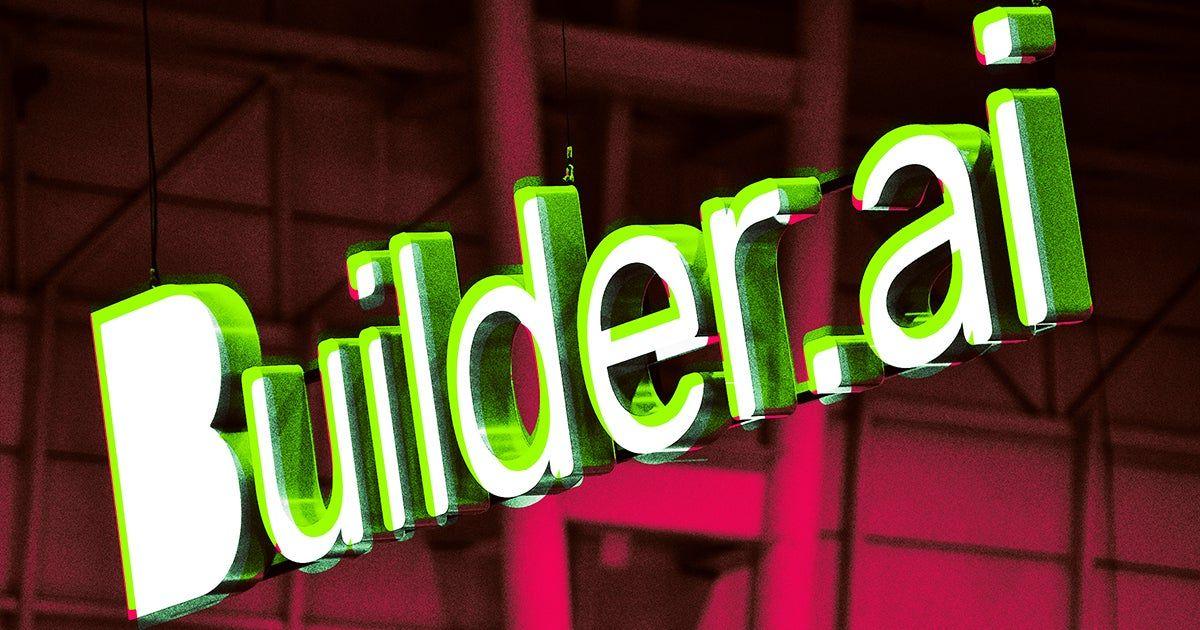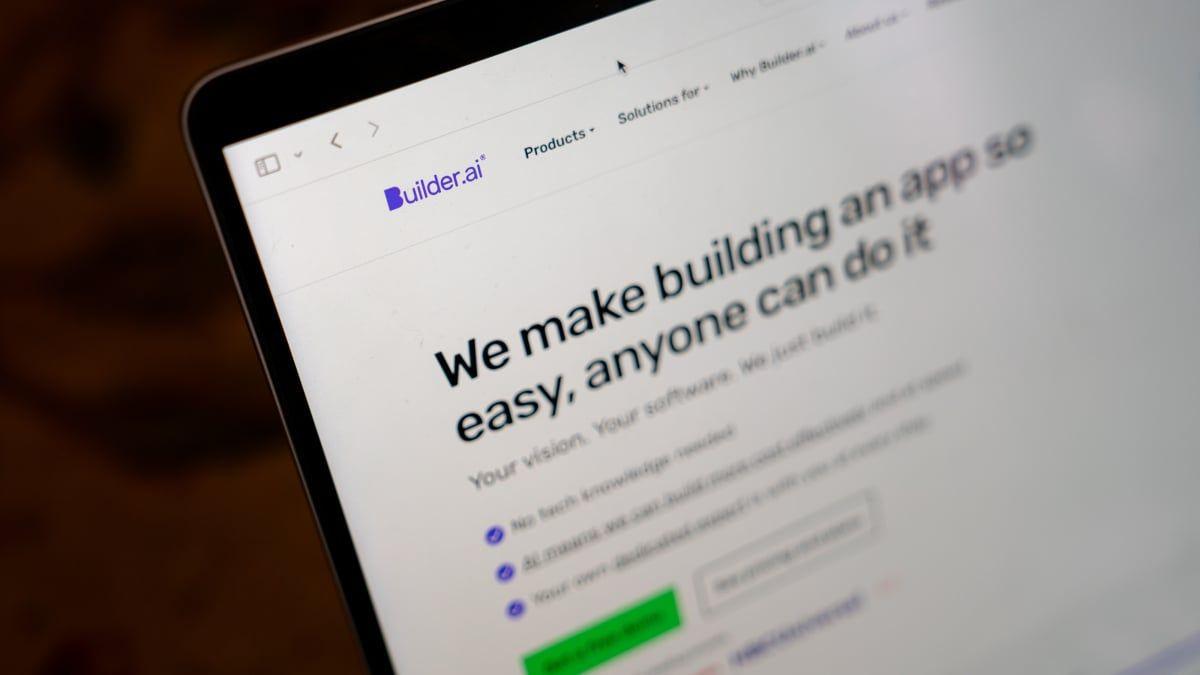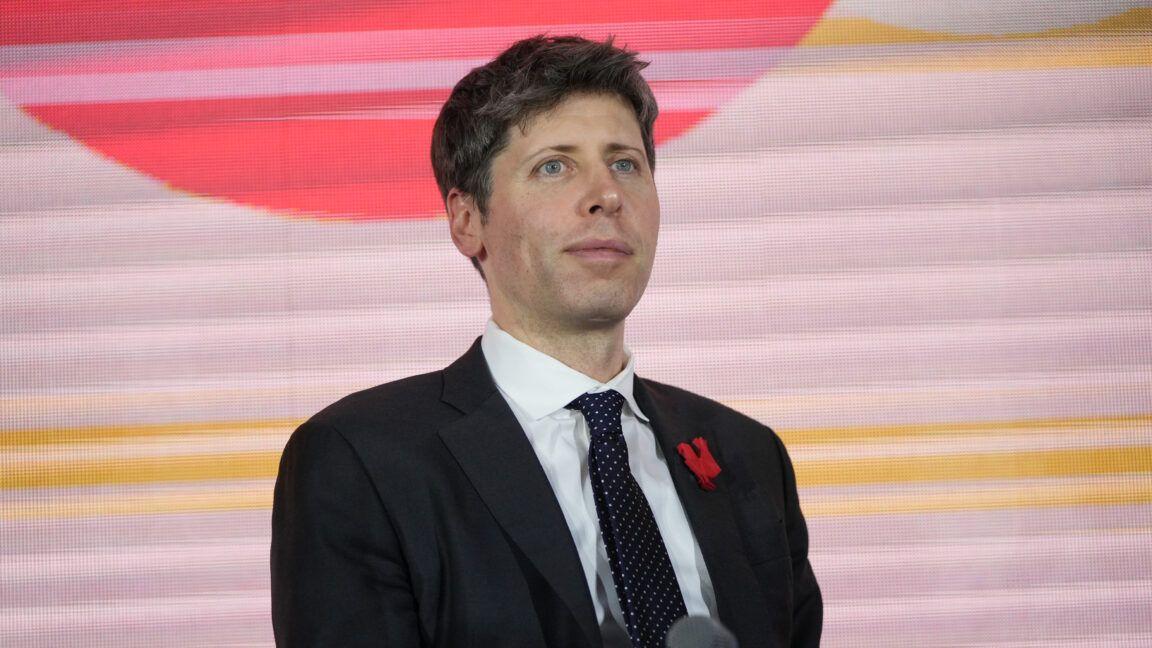Builder.ai's Spectacular Collapse: The Fall of a Billion-Dollar AI Startup
4 Sources
4 Sources
[1]
Builder.ai coded itself into a corner - now it's bankrupt
Comment The collapse of Builder.ai has cast fresh light on AI coding practices, despite the software company blaming its fall from grace on poor historical decision-making. Backed by Microsoft, Qatar's sovereign wealth fund, and a host of venture capitalists, Builder.ai rose rapidly to near-unicorn status as the startup's valuation approached $1 billion. The company's business model was to leverage AI tools to allow customers to design and create applications, although the Builder.ai team actually built the apps. Blue-chip investors poured in cash to the tune of more than $500 million. However, all was not well at the startup. The company was previously known as Engineer.ai, and attracted criticism after The Wall Street Journal revealed in 2019 that the startup used human engineers rather than AI for most of its coding work. Builder.ai grew more forthcoming about the human factor, but the company came unstuck over its finances. It appointed a new CEO, Manpreet Ratia, in February 2025, taking over from founder Sachin Dev Duggal, whom the company credited with "transforming software development through AI-powered innovation." It fell to Ratia to inform employees during a May 20 call reported by the Financial Times that the company was filing for bankruptcy as funds abruptly ran out. Builder.ai was reportedly "unable to recover from historic challenges and past decisions that placed significant strain on its financial position." While the failure of startups, even one as high profile as Builder.ai, is not uncommon, the company's reliance on AI tools to speed coding might give some users pause for thought. The tech industry is generating a tsunami of AI slop, along with a few instances of true value. In the coding world, generative AI can make for useful coding assistants but are often less than helpful when expected to behave like an engineer. An amusing thread on Reddit titled "My new hobby: watching AI slowly drive Microsoft employees insane" linked to several GitHub threads in the .NET runtime repo in which humans patiently handhold the GitHub Copilot coding agent as it makes mistake after mistake, many of which would make a junior developer blush. It all feels a bit Mechanical Turk, except for coding rather than chess, and the intervention of a human being is all too evident. One commenter said: "The amount of time they spend replying to a friggin LLM is just crazy... It's also depressing." Last month, Microsoft CEO Satya Nadella boasted that 30 percent of the code in some of the tech giant's repositories was written by AI. As such, an observer cannot help but suspect some passive aggression is occurring here, where a developer has been told that the agent must be used, and so they are going to jolly well do it. After all, Nadella is not one to shy from layoffs. The problem highlighted by both the pull requests in the .NET runtime repo and the failure of Builder.ai is that regardless of the wishful thinking from tech giants seeking their next big growth opportunity, startups pitching the latest and greatest innovation, and execs seeking to trim their budgets at the expense of engineers, generative AI tools are not a universal panacea. Although Builder.ai's fall has roots in financial mismanagement and forecasts that were arguably over-optimistic, the company was a darling of the generative AI coding industry and an example of how a business can optimize its processes through the application of the technology. The fact that it wasn't able to convince enough customers to pay it enough money to stay solvent should give pause to those who see generative AI as a replacement for junior developers. As the experience of the unfortunate Microsoft staffers having to deal with the GitHub Copilot Agent shows, the technology still has some way to go. One day it might surpass a mediocre intern able to work a search engine, but that day is not today. ®
[2]
Builder.ai collapse exposes dangers of 'FOMO investing' in AI
The collapse of Builder.ai exposes the growing threat of "FOMO investing," according to an expert in tech growth intelligence. Builder had become one of Britain's best-funded startups, but is now filing for bankruptcy due to financial problems. The insolvency comes after enormous sums were invested into the business. Big-name backers including Microsoft and Qatar's sovereign wealth fund had poured a total of over $500mn into the startup, which aimed to simplify software development with AI. The funding gave Builder a coveted unicorn status, with a valuation exceeding $1.3bn. But the eye-watering sums couldn't keep the business afloat. Builder blamed the downfall on "historic challenges and past decisions" that strained its financial position. The company has been accused of inflating sales figures under the leadership of Sachin Dev Duggal, the startup's founder. Duggal stepped down as CEO in February, but retained the role of "chief wizard." His replacement as chief executive, Manpreet Ratia, told employees this week that the company was filing for bankruptcy. Ratia said "unexpected and irreversible action" from lenders had triggered the company's collapse. Carrie Osman, CEO of growth intelligence firm Cruxy, highlighted another cause: "FOMO investing." "Technology like GenAI has been massively overhyped in recent years and investors and boards are under increasing pressure to find the latest, sexiest uses for AI," she said. "Driven by FOMO rather than fundamentals, investors are rushing into deals with minimal scrutiny, inflating valuations and sidelining due diligence." Her warning comes amid an extended "AI gold rush." Since the launch of ChatGPT in 2022, investors have heavily focused their funds on artificial intelligence companies. Approximately 40% of last year's US venture cash came from funds that "list AI as a focus," according to a report released this week by Silicon Valley Bank (SVB). In 2021, the proportion was just 10%. SVB also discovered a growing number of "zombiecorns" -- unicorns with poor revenue growth and unit economics. Builder has become another member of the injured flock. Osman warned that more of them are set to emerge. "Microsoft and others failed to capture the true value and ROI from Builder's product and didn't dig below the headlines and hype," she said. "This isn't the first case of disastrous FOMO we've seen over the years, either -- Zymergen, Frank, and Theranos are all famous examples. And as AI washing continues, this won't be the last case."
[3]
A Billion Dollar AI Startup Just Collapsed Spectacularly
Image by Ramsey Cardy / Sportsfile for Web Summit via Getty / Futurism As the artificial intelligence industry struggles with ever-rising costs -- not to mention a steady uptick in hallucinations -- investors are getting impatient. One investment firm went as far as seizing $37 million from accounts owned by Builder.ai, a UK-based AI startup meant to make developing apps "as easy as ordering a pizza." That left the company with just $5 million, according to Bloomberg, prompting its senior lenders to place it into default. With very little cash left to keep the ship afloat, CEO Manpreet Ratia closed the startup's doors and filed for bankruptcy. Builder.ai was previously one of the most well-funded tech startups in the game, with over $450 million in backing from sources as big as tech giant Microsoft, Japanese investment firm SoftBank, and the Qatari government's sovereign wealth fund. That gave it a valuation worth over $1 billion, drawing comparisons to Mark Zuckerberg's Meta. Ratia told the Financial Times the startup was "unable to recover from historic challenges and past decisions that placed significant strain on its financial position," adding that he had been running the business with "zero dollars" in its US and UK accounts. The CEO took over for Builder.ai's founder and "chief wizard" Sachin Dev Duggal in March, after the latter saddled the business with hundreds of millions worth of debt while burning through its dwindling cash fund, according to FT. Duggal was likewise embattled in a high-stakes legal probe by authorities in India, who named him a suspect in an alleged money laundering case. For his part, Duggal denied the accusations, saying he was simply a witness, though FT has also reported Duggal heavily relied on the services of an auditor with whom he has close personal ties. It's not known what, exactly, pushed the first domino. Viola Credit, the company that seized Builder.ai's coffers, has yet to give an explanation, though we can probably guess they saw the writing on the wall and simply hoped to pad their losses. It's a big moment for the AI industry, as the pressure grows for AI companies to actually come out with a usable -- not to mention sustainable -- product. Though AI companies accounted for 40 percent of the money raised by US startups last year, the vast majority of them have yet to turn a profit. Many AI startups struggle to find any consistent revenue stream at all beyond tech-crazed venture capitalists, and a not insignificant number have been caught misleading investors about their AI's capabilities to keep the cash flowing. Case in point, after Ratia took the helm back in March, Builder.ai lowered its revenue estimates for the last half of 2024 by 25 percent -- a major blow for the much-hyped company. The startup was likewise caught trying to pass off human-built software as AI back in 2019. As auditors and journalists sift through the rubble to find out what went wrong, now makes as good a time as any to take a temperature check on unchecked AI hype.
[4]
Builder.ai's Shocking $450M Fall: Microsoft And QIA-Backed No-Code AI Darling Files For Bankruptcy After Creditor Seizure - Microsoft (NASDAQ:MSFT)
Builder.ai, the British no-code AI startup once celebrated for its strategic partnership with Microsoft MSFT and a $250 million raise led by the Qatar Investment Authority, announced Tuesday that it is filing for bankruptcy protection. According to Bloomberg, the dramatic fall comes after a major lender, Viola Credit, seized $37 million from the company's accounts, leaving just $5 million in restricted funds, effectively paralyzing operations across five countries. Don't Miss: Hasbro, MGM, and Skechers trust this AI marketing firm -- Invest before it's too late. 'Scrolling To UBI' -- Deloitte's #1 fastest-growing software company allows users to earn money on their phones. You can invest today for just $0.30/share with a $1000 minimum. CEO Manpreet Ratia replaced founder Sachin Dev Duggal earlier this year in a boardroom shake-up aimed at restoring investor confidence. Ratia said that most of the company's employees have been laid off and that Builder.ai will now begin bankruptcy filings in each of its operational jurisdictions, including the U.K., U.S., UAE, Singapore, and India, Bloomberg reports. Deloitte's #1 fastest-growing software company partners with Amazon, Walmart & Target - Many are rushing to grab 4,000 of its pre-IPO shares for just $0.26/share! Mode Mobile developed a smartphone called EarnPhone, which allows users to earn and save money by playing video games, listening to music and reading the news. With the phone priced at an affordable $99, the barriers to adoption are low. Earning Opportunity for All Smartphone Users Mode EarnPhone State-of-the-art smartphone device includes built-in earning features. EarnOS Proprietary earning software turns smartphones into EarnPhones. Min. Investment: $1000 Share Price: $0.26 Valuation: $310M Click To Learn More About Mode MobileBuilder.ai Raised $450M Backed by Microsoft, QIA, and WndrCo Founded in 2016, Builder.ai positioned itself as a revolutionary tool for businesses to build custom apps using AI with minimal coding. It raised over $450 million in total funding, attracting marquee investors like Microsoft, the World Bank's IFC, Jeffrey Katzenberg's WndrCo, Lakestar, and SoftBank's DeepCore incubator, Bloomberg reports. In May 2023, Microsoft made an equity investment and announced plans to integrate Builder.ai's platform with its own Azure and AI services. Builder.ai offered a platform that allowed businesses to create custom smartphone apps with little or no coding, aiming to simplify and accelerate the app development process. The company positioned itself as a no-code AI solution, gaining attention during the surge of interest in generative AI, Bloomberg says. However, recent developments signaled deeper challenges within the company's operations. Trending: Maker of the $60,000 foldable home has 3 factory buildings, 600+ houses built, and big plans to solve housing -- this is your last chance to become an investor for $0.80 per share. Less than two months ago, Builder.ai confirmed it had revised down key sales figures and appointed auditors to examine financials from the past two years. Former employees raised concerns that sales performance had been inflated in previous investor briefings. According to Bloomberg, these allegations triggered a domino effect of investor caution, internal restructuring, and eventual loss of confidence. Investor Hype Meets Harsh Reality The turning point came when Viola Credit, which had lent the company $50 million in 2023, seized $37 million from its accounts, leaving Builder.ai unable to meet payroll obligations or continue core operations. The remaining funds, located in Indian accounts, are restricted due to regulatory limitations, Ratia told Bloomberg. The insolvency proceedings reflect a growing wave of AI startup turbulence. Phil Brunkard, executive counselor at Info-Tech Research Group, told Computer World that many AI firms rushed to scale on the back of hype, often lacking strong financial controls or truly differentiated offerings. See Also: Nancy Pelosi Invested $5 Million In An AI Company Last Year -- Here's How You Can Invest In Multiple Pre-IPO AI Startups With Just $1,000. Bankruptcy Across Borders: A Global Unraveling Builder.ai's situation is complicated by its international footprint, Bloomberg reports. Insolvency laws differ across the five regions where it operates, with the U.K. process involving the appointment of a court-approved administrator. The company said in the LinkedIn statement that it will work closely with administrators to explore options for salvaging parts of the business, while also prioritizing communication with affected employees, customers, and partners. Builder.ai expressed gratitude to its team and stakeholders in the statement, but acknowledged that past missteps had pushed the company beyond recovery. For a firm once hailed as the future of no-code AI, the collapse may highlight growing scrutiny around startup fundamentals amid the AI investment boom. Read Next: Invest where it hurts -- and help millions heal: Invest in Cytonics and help disrupt a $390B Big Pharma stronghold. Deloitte's fastest-growing software company partners with Amazon, Walmart & Target - Many are rushing to grab 4,000 of its pre-IPO shares for just $0.30/share! Image: Shutterstock MSFTMicrosoft Corp$458.831.92%Stock Score Locked: Want to See it? Benzinga Rankings give you vital metrics on any stock - anytime. Reveal Full ScoreEdge RankingsMomentum73.58Growth52.06Quality32.69Value13.70Price TrendShortMediumLongOverviewMarket News and Data brought to you by Benzinga APIs
Share
Share
Copy Link
Builder.ai, a once-promising AI-powered app development platform, has filed for bankruptcy after burning through $500 million in funding. The collapse highlights the risks of AI hype and "FOMO investing" in the tech industry.
The Rise and Fall of Builder.ai
Builder.ai, once a darling of the AI startup world, has filed for bankruptcy, marking a spectacular fall from its near-unicorn status. The company, which aimed to simplify app development using AI, had raised over $500 million from high-profile investors including Microsoft, Qatar's sovereign wealth fund, and various venture capitalists
1
2
. However, the startup's rapid ascent has been followed by an equally dramatic collapse, leaving the tech industry reeling and raising questions about the sustainability of AI-focused businesses.
Source: Futurism
Financial Mismanagement and Creditor Action
The immediate trigger for Builder.ai's downfall was a sudden financial crisis. Viola Credit, a major lender, seized $37 million from the company's accounts, leaving it with just $5 million in restricted funds
4
. This action effectively paralyzed operations across five countries where Builder.ai operated. CEO Manpreet Ratia, who took over from founder Sachin Dev Duggal in February 2025, was forced to inform employees that the company was filing for bankruptcy as funds abruptly ran out1
.
Source: The Register
AI Promises vs. Reality
Builder.ai's business model was built on the promise of leveraging AI tools to allow customers to design and create applications easily. However, the company faced criticism in 2019 when The Wall Street Journal revealed that it relied heavily on human engineers rather than AI for most of its coding work
1
. This disconnect between the company's AI-centric marketing and its actual practices raised eyebrows in the tech community and may have contributed to its eventual downfall.The Dangers of "FOMO Investing"
The collapse of Builder.ai has exposed the growing threat of "FOMO (Fear of Missing Out) investing" in the AI sector. Carrie Osman, CEO of growth intelligence firm Cruxy, pointed out that the massive hype around technologies like generative AI has led investors and boards to rush into deals with minimal scrutiny, inflating valuations and sidelining due diligence
2
. This trend is particularly evident in the AI space, where approximately 40% of last year's US venture capital came from funds focusing on AI, up from just 10% in 20212
.
Source: The Next Web
Related Stories
Broader Implications for the AI Industry
Builder.ai's failure raises important questions about the state of the AI industry and the sustainability of many AI startups. Despite the significant investments pouring into the sector, many AI companies struggle to find consistent revenue streams beyond venture capital funding
3
. The pressure is mounting for AI companies to produce usable and sustainable products, as investors grow impatient with the lack of profitability in the sector.Lessons Learned and Future Outlook
The collapse of Builder.ai serves as a cautionary tale for both investors and entrepreneurs in the AI space. It highlights the need for more rigorous due diligence, realistic expectations, and a focus on fundamental business principles rather than hype-driven valuations. As the AI industry matures, it's likely that we'll see a shakeout of companies that cannot deliver on their promises, while those with solid foundations and genuine technological advantages may emerge stronger
2
3
.In conclusion, the Builder.ai saga underscores the volatile nature of the AI startup ecosystem and the risks associated with rapid growth fueled by massive investments. As the dust settles, the tech industry will need to reassess its approach to AI investments and development, balancing innovation with financial sustainability and realistic expectations.
References
Summarized by
Navi
[1]
[2]
Related Stories
Microsoft-Backed AI Startup Builder.ai Exposed as Fraudulent, Files for Bankruptcy
06 Jun 2025•Business and Economy

Builder.ai Initiates Third-Party Audit Amid Revenue Estimate Revisions and Sales Inflation Allegations
01 Apr 2025•Business and Economy

Sam Altman Warns of AI Bubble While OpenAI Seeks $500B Valuation
16 Aug 2025•Business and Economy

Recent Highlights
1
Trump bans Anthropic from government as AI companies clash with Pentagon over weapons and surveillance
Policy and Regulation

2
Nvidia pulls back from OpenAI investment as Jensen Huang cites IPO plans and complex dynamics
Technology

3
Samsung unveils Galaxy S26 lineup with Privacy Display tech and expanded AI capabilities
Technology





